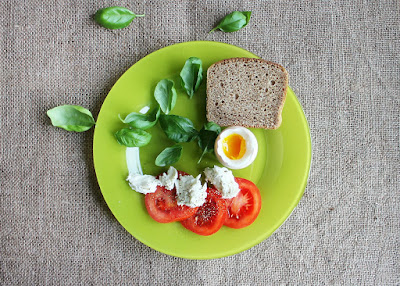As I did not sleep as much last night, this night was
considerably better. I slept at least 7 good hours. Without waking up in
between, feeling very rested. But then I fell back asleep just before my alarm
went off. Again not the best start into the day. And my motivation to get up
was extremely low. And that is actually
interesting to notice. I now see how much of a motivation booster food is for
me. Especially when I was eating only one meal a day and ate it in the morning.
I was jumping out of bed, because I knew after my workout food would wait for
me.
But on the water fast, with probably many more days without
food ahead, motivation to start the day is much lower for me.
Working day and metal energy
But as I went through my working day, I felt extremely
focused. I work a desk job that is mentally engaging. Putting on some music and
working on the tasks brought me in a hyper focused state very easily. Time was
flying by much more quickly. I would say this is called being in the zone. And
sadly I do not experience it very often. My theory is that fasting (or a
ketogenic state?) lowers the level of engagement, required to release positive
neuro-transmitters. Or they are generally more elevated. This is also why you
do not need to do much. Boredom arises but I still find it easier to handle
than usually. I just feel content and happy.
Body weight
As my body weight is probably extremely low, I am wondering
how much longer I can go. I am aware that I am probably losing a lot of lean
mass. But my experience of previous fasts has shown me that I do not need to
fear that. After a fast, the body acts like a dry sponge. Absorbing and
utilizing everything with incredible efficiency. Coupled with training, it is
easy to gain back a lot of the lost muscle very quickly. Might be worth
tracking, for a good before-after comparison.
Mental tip to last you through a long fast
 |
| Celery juice is good to break a water fast |
Mineral Deficiencies?
Today I technically broke my water fast. I am continuing with a juice fast. But not the typical kind where you drink fruit juices. I am having celery juice and cabbage. In minor quantities as well. I will have two glasses of this a day. Amounting to about 50kcal. In addition I will start drinking herbal teas.
The reason for that are muscle twitches. I had them now continuously for several days. I hope they are related to electrolyte imbalances or deficiencies. Therefore I drink the vegetable juices throughout the day. In the hope that they will supply some minerals.









